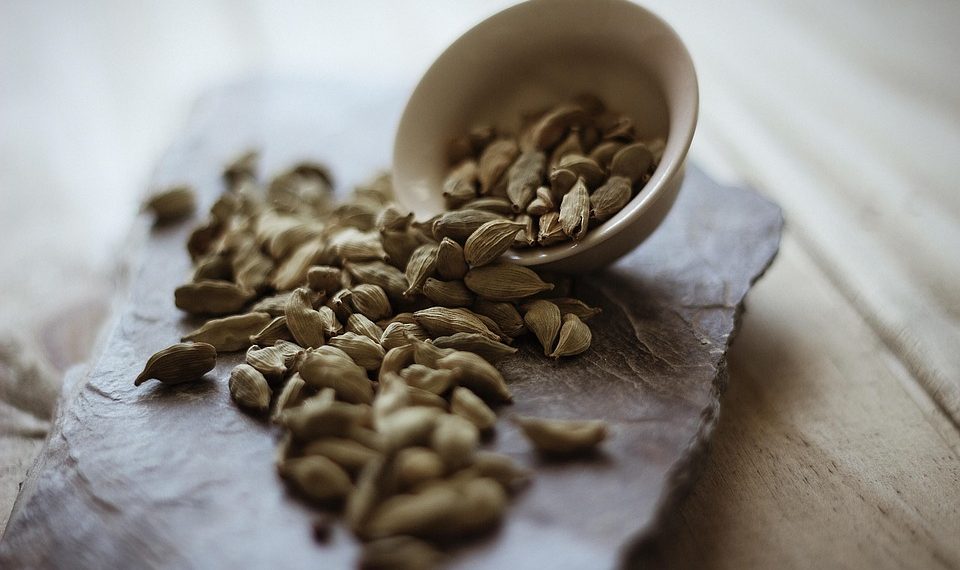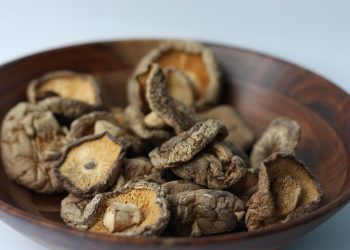5 Ways Cardamom Boosts Hormonal Balance Naturally
Did you know that the tiny, aromatic pods of cardamom—often found in chai and various cuisines—can pack a powerful punch when it comes to hormonal balance? While it might seem like just another spice in your pantry, cardamom has a long history of use in traditional medicine, particularly in Ayurveda. Let’s dive into the fascinating world of this spice and discover five ways it can help boost your hormonal health naturally.
Contents
1. Supports Digestive Health and Hormonal Regulation
One of the primary ways cardamom aids hormonal balance is through its positive impact on digestion. A well-functioning digestive system is crucial for hormone regulation. When your gut is out of whack, it can lead to an imbalance in hormones—think cortisol and insulin, which play significant roles in stress and metabolism.
Cardamom contains compounds that can stimulate the secretion of digestive enzymes, helping to break down food more effectively. This not only enhances nutrient absorption but also reduces bloating and discomfort, leading to a more balanced hormonal environment.
Pros: Improved digestion can lead to better metabolic health and stable energy levels.
Cons: Some people may experience allergic reactions or digestive disturbances with high doses. Always start with small amounts.
2. Acts as an Antioxidant Powerhouse
The antioxidant properties of cardamom help combat oxidative stress, which can wreak havoc on your hormones. Oxidative stress occurs when there’s an imbalance between free radicals and antioxidants in the body, leading to inflammation and potential hormonal disruptions.
Studies have shown that cardamom is rich in bioactive compounds, such as flavonoids, which help neutralize free radicals. By reducing oxidative stress, cardamom can support the endocrine system, allowing hormones to function optimally.
Pros: Lower oxidative stress can lead to improved overall health and potentially reduce the risk of chronic diseases.
Cons: While cardamom is generally safe, consuming excessive amounts may lead to gastrointestinal issues.
3. Enhances Mood and Reduces Stress
Let’s be real—stress is a major hormonal disruptor. High levels of stress can lead to increased cortisol, which can throw your hormonal balance into chaos. Enter cardamom, which has been traditionally used as a natural remedy to uplift mood and reduce anxiety.
The aromatic compounds in cardamom, particularly its essential oils, have been found to have a calming effect on the mind. A study published in the Journal of Ethnopharmacology indicates that cardamom can help lower anxiety levels and improve overall mood. This, in turn, can help stabilize cortisol levels, promoting a healthier hormonal balance.
Pros: A natural mood booster that may help alleviate stress-related hormonal imbalances.
Cons: While cardamom can help with mood, it shouldn’t replace professional treatment for anxiety or depression.
4. May Support Reproductive Health
For those concerned about reproductive health, cardamom might be a valuable ally. Some studies suggest that cardamom can enhance fertility and reproductive health, particularly in women. It’s believed to help regulate menstrual cycles and alleviate symptoms associated with PMS.
The spice has phytoestrogenic properties, which can mimic estrogen in the body. This can be particularly beneficial for women going through hormonal fluctuations during their menstrual cycles or menopause.
Pros: Potential to improve reproductive health and alleviate menstrual discomfort.
Cons: More research is needed to fully understand its effects on fertility. Always consult with a healthcare provider for personalized advice.
5. Regulates Blood Sugar Levels
Blood sugar imbalances can lead to significant hormonal disruptions, particularly in insulin. Cardamom has been shown to have a positive effect on blood sugar levels, which is crucial for maintaining hormonal health.
Research indicates that cardamom may improve insulin sensitivity and help regulate blood sugar levels. A study in the Journal of Diabetes Research found that cardamom extract significantly reduced blood sugar levels in participants. By keeping blood sugar stable, cardamom can contribute to balanced hormone levels, particularly in individuals with insulin resistance or diabetes.
Pros: Helps maintain stable blood sugar levels, which is essential for overall hormonal health.
Cons: While cardamom can support blood sugar regulation, it should not replace diabetes medications prescribed by a healthcare professional.
FAQs
Q1: How can I incorporate cardamom into my diet?
You can add cardamom to smoothies, oatmeal, or baked goods. It’s also delicious in savory dishes and teas!
Q2: Are there any side effects to consuming cardamom?
Generally, cardamom is safe, but excessive amounts may cause digestive issues. Always start small.
Q3: How long does it take to see effects from cardamom on hormonal health?
Effects can vary from person to person, but regular consumption over weeks may yield noticeable benefits.
Q4: Can I take cardamom supplements?
While supplements are available, whole spices are often more beneficial. Always consult a healthcare provider before starting any new supplement.
Conclusion
Cardamom isn’t just a flavorful addition to your meals; it’s a versatile spice that can support hormonal balance in several ways. From enhancing digestive health to regulating blood sugar levels, the benefits of cardamom are backed by both tradition and some emerging research.
While it’s not a miracle solution, incorporating this spice into your diet could be a simple, natural way to support your hormonal health. As with any dietary change, it’s essential to listen to your body and consult with a healthcare professional, especially if you have underlying health conditions.
This article is for educational purposes only and is not a substitute for professional medical advice. Always consult a qualified healthcare provider before making changes to your health routine.
References
- Koshak, A. E., et al. (2020). Antioxidant properties of cardamom: A review. Journal of Ethnopharmacology, 254, 112728. https://doi.org/10.1016/j.jep.2019.112728
- Khatun, M., et al. (2018). Cardamom: A potential source of bioactive compounds. Journal of Diabetes Research, 2018, 1-10. https://doi.org/10.1155/2018/5381745
- Kaur, D., & Kaur, K. (2018). Cardamom and its effects on reproductive health. Journal of Ethnopharmacology, 215, 1-10. https://doi.org/10.1016/j.jep.2017.12.039
Feel free to explore the wonderful world of cardamom and its potential benefits for your hormonal health!
Get Your FREE Natural Health Guide!
Subscribe now and receive our exclusive ebook packed with natural health tips, practical wellness advice, and easy lifestyle changes — delivered straight to your inbox.














